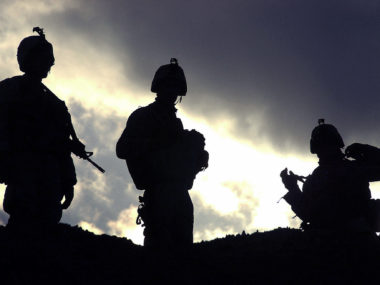By Erica Chenoweth for Denver Dialogues
In an op-ed in Slate, Dan Byman suggests that if the Islamic State (IS) did manage to bring down MetroJet 9268 over the Sinai desert, it is a game-changer for the group — and the international response to it. Byman argues that such an attack would represent a significant increase in IS’s capacity and motivation to attack Russia (and the United States) outside of its main base of operations. He focuses on three core points: (1) attacking a civilian airliner would be a strategic shift for the organization; (2) such a bombing would represent a new geographic “reach” for ISIS; and (3) this latest attack could reflect the group’s refocus from targeting local Muslim “nonbelievers” to IS’s declared enemies, including Russia and the US.
Assuming that IS carried out this attack, such a development would not represent a significant departure for IS.
First, a bomb is a bomb. Whether it detonates in a marketplace or on an airplane, it kills many people. This one happened to be on an airplane, but IS has used countless bombs—including, allegedly, artillery containing mustard gas—throughout Syria and Iraq. So far, the investigation has not revealed a new type of explosive that current security procedures cannot detect.
Second, bombing an airliner does not necessarily require sophisticated weaponry or a tremendous capacity boost. It does require the ability to circumvent or evade standard security procedures. The current theory is that someone with access to the plane placed a bomb in the hold prior to takeoff. Such a theory suggests the presence of an insider and/or a major security breach at the airport. Either scenario is easy to imagine in a context where corruption and impunity are widespread, and where the Sisi government’s relentless assaults on Islamist groups has pushed many recruits directly into the arms of IS’s self-proclaimed “Sinai Province.” Nor does it represent a strategic shift for the group, which has been targeting Americans, Russians, and many other country’s citizens whenever it has been convenient for the group to do so.
Third, Sharm-al-Sheikh does not represent a novel or impressive geographic reach. Typically IS’s most convenient targets have been those within its immediate territory in Syria and Iraq. However, it has also attacked others working or living near those areas, such as activists and humanitarian groups working in Turkey. IS’s affiliate in Sinai possesses de facto territorial control despite a years-long assault by Egyptian security forces. This suggests that the group has considerable staying power in that area—and that Egypt’s security forces lack the will and/or the capacity to defeat them. It also suggests that people on holiday in Sharm are among the most obvious targets for the group.
Fourth, ISIS has already inspired and/or directed attacks outside of its main base of operations. This is not the first time that IS has used its regional affiliates to launch attacks. While this might be the most deadly attack by a regional affiliate so far, the damage is more a function of the mode of the attack (bomb on a civilian airliner) rather than a new tactical innovation that increases the group’s capacity for mass-casualty harm outside of its primary bases of operation.
Fifth, the attack tells us nothing new about the way in which insurgencies behave when attacked from abroad. In fact, IS is now behaving as many analysts expected. Retaliatory attacks are anticipated reactions to foreign interventions against such groups. Robert Pape made this argument popular in his seminal 2003 piece explaining that campaigns of suicide bombing, for instance, often followed foreign invasions. Notwithstanding methodological critiques of Pape’s work, the finding that foreign intervention results in retaliatory terror attacks against any accessible civilians associated with the intervener is a finding that the literature well substantiates at this point. In conflicts like this, terror attacks are an expected (albeit unintended) outcome of foreign intervention, particularly when such intervention supports the government.
Sixth, killing civilians outside of a warzone is not necessarily a sign of a group’s strength. A terror attack is just as often a sign of an armed group’s weakness. IS cannot directly confront Russian or US forces and win. So instead, the group uses its affiliates to retaliate against their attacker’s civilians. They choose a soft target — civilians vacationing within a corrupt country with potentially shady security procedures and a sworn and stubborn affiliate nearby. This is hardly the sign of a group with tremendous capacity for conquest. This is what groups do when they lack more conventional military capacity and settle for punishing the adversary through graphic violence.
So, in spite of fears that the bombing represents a new phase requiring a new strategy in the war of “IS vs. Everybody,” I would argue that we’ve seen this movie before — lots of times. As such, the ways in which the international community prevents a similar attack are straightforward. Instead of treating this incident as a radical departure for the group, which might yield a counterproductive overreaction, governments should simply ensure that airport personnel are following approved security measures at airports. Standard security checks and background and vetting processes among airport employees work fine — unless incompetence, corruption, and/or oppressive government practices systematically undermine them. Overcoming those syndromes would certainly help to prevent a repeat of this tragic event.
In other words, nothing new to see here.








3 comments
Very true, professor Chenoweth. this is nothing new. I’ve weighed up the six points with what has been happening in East Africa (Kenya). Unless the developing world especially improve on their systems of security, such attacks will soon become the norm. Though the article plays down the IS threat vis-à-vis Government military, Northern Nigeria begs to differ.